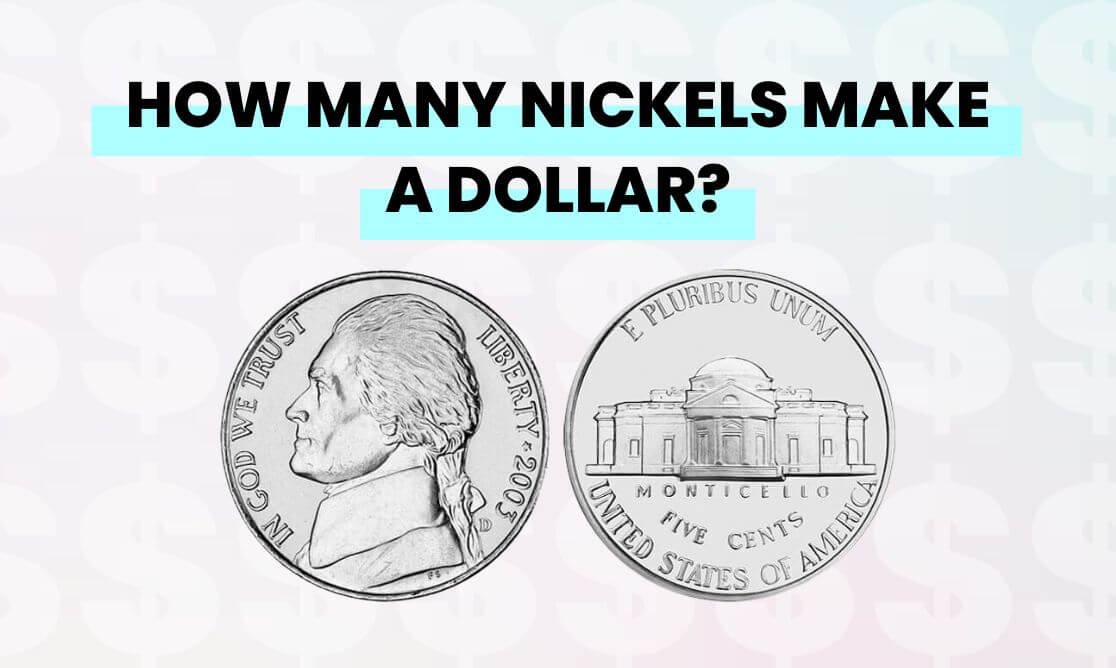Have you ever wondered how many nickels it takes to make a dime? Or how many dimes are needed to make a dollar?
Understanding currency denominations is vital for effectively managing finances, making informed transactions, budgeting, saving, and achieving long-term financial stability.
Scroll on for the definitions of a nickel and a dime and learn how to calculate how many of one denomination equal another. We will also discuss the real-world applications of this knowledge, such as counting and making change in daily transactions and budgeting and saving money.

Coming up next
Key takeaways
- A nickel is worth 5 cents, and a dime is worth 10 cents.
- It takes two nickels to make a dime.
- Understanding currency denominations is important in everyday transactions, budgeting, and saving money.
- Many resources are available to help you continue learning about money, including books, websites, and financial literacy programs.
Understanding currency denominations
A nickel is a coin worth 5 cents, made of copper and nickel. It features Thomas Jefferson on one side and Monticello on the other.
Meanwhile, a dime is a coin worth 10 cents, which is also made of copper and nickel. It showcases Franklin D. Roosevelt on one side and a torch, olive branch, and oak branch that represent liberty, peace, and strength on the other.
Comparing the two, we can see that a nickel is worth half the value of a dime.
How many nickels make a dime?
When we consider the value of coins, it's important to understand the relationship between different denominations. In this case, we'll explore how many nickels are equivalent to a dime.
To determine how many nickels make a dime, we divide the value of a dime (10 cents) by the value of a nickel (5 cents). Doing the math, we find that 10 divided by 5 equals 2. Therefore, it takes two nickels to equal the value of a dime.
This simple calculation reveals that a dime is worth twice as much as a nickel. So if you have two nickels, you can exchange them for a single dime. Understanding these conversions can be helpful when counting and exchanging coins.
Real-world applications
Understanding the value of different currency denominations has practical implications in our daily lives, especially when handling money and making financial decisions. Here are some real-world applications where knowing the value of coins can be beneficial:
- Making change. Accurately providing change is essential when working in a cash-based transaction, such as a retail store or a food truck. Knowing that 10 nickels make a dollar or that 20 dimes make a dollar allows you to quickly determine the appropriate combination of coins to give as change, ensuring smooth and efficient transactions.
- Budgeting and saving. Budgeting is an essential part of managing personal finances. Understanding the value of different coin denominations can help you allocate and track your expenses effectively. For instance, if you have a jar filled with nickels, knowing that each nickel represents 5 cents can assist you in estimating your savings and setting financial goals.
- Money conversion. When traveling to a different country, knowing the value of coins and banknotes in that currency becomes crucial. Converting the local currency to your home currency helps you gauge the cost of goods and services accurately, enabling you to make informed decisions and avoid overspending.
- Financial planning. Understanding the value of money in different contexts is essential for making intelligent financial decisions. Knowing the worth of various coins and denominations allows you to compare prices, evaluate discounts, and assess the overall value of goods and services. This knowledge helps you make informed choices that align with your financial goals and priorities.
Conclusion
In conclusion, having a solid understanding of currency denominations is crucial for effective money management. This knowledge has practical applications in our daily lives, enabling us to handle transactions easily. Whether you're making a purchase, receiving change, or calculating savings, knowing the value of different coins allows you to navigate financial transactions confidently and accurately.
Remember, financial literacy is an ongoing journey. By learning and staying informed about money matters, you can build a solid foundation for achieving your financial goals and creating a secure financial future.

